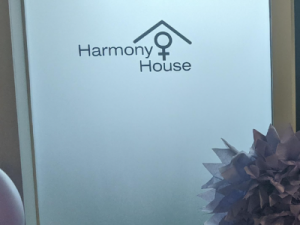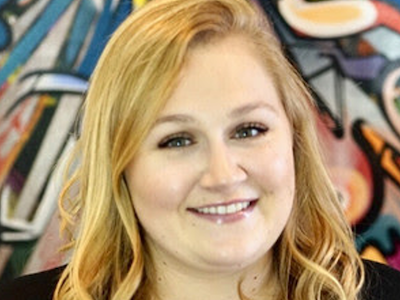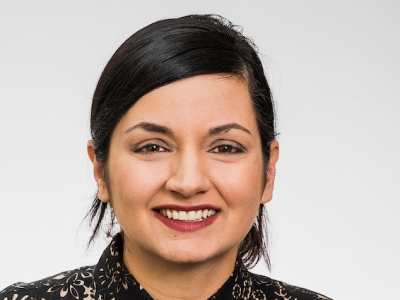Ray Eskritt is the Executive Director of Harmony House Women’s Shelter and a graduate of the MPNL program. PANL Perspectives spoke to Eskritt about barriers to domestic-violence shelters and successes before and after the pandemic. The interview, edited for length and clarity, is by Sherlyn Assam.
 Harmony House is the only second-stage shelter in Ottawa. What are some of the barriers to second-stage, domestic-violence shelters?
Harmony House is the only second-stage shelter in Ottawa. What are some of the barriers to second-stage, domestic-violence shelters?
 Eskritt: The province wasn’t funding them anymore. We were lucky, because we had private donors who kept us afloat. Government policies actually matter: the police budget is about $332 million, and meanwhile, 160 agencies that operate in the city have to compete for $25 million. That’s quite a disparity. We’re trying to get people into housing, but there’s a housing crisis; Ottawa Community Housing has a seven- to 10-year waitlist. There’s just nowhere for people to go.
Eskritt: The province wasn’t funding them anymore. We were lucky, because we had private donors who kept us afloat. Government policies actually matter: the police budget is about $332 million, and meanwhile, 160 agencies that operate in the city have to compete for $25 million. That’s quite a disparity. We’re trying to get people into housing, but there’s a housing crisis; Ottawa Community Housing has a seven- to 10-year waitlist. There’s just nowhere for people to go.
But now we’re in the time of COVID, where domestic violence got pushed to the forefront. It tripled during the pandemic. We had a woman murdered in this country every two and a half days during the pandemic. But we’re not counting on it staying this way forever. There’s going to be mental health services that need support, children that need support, elderly people that need support, newcomers — everybody’s going to be competing for these dollars
 With agencies competing for money, do you find success with foundation grants for your organization?
With agencies competing for money, do you find success with foundation grants for your organization?
Eskritt: We find huge success with grants. We find that foundations are good for funding projects. During the school closures, we transformed our boardroom into a school classroom. We offered free laptops and a teacher to be in our classroom every day to help kids whose parents couldn’t help them at school for whatever reason. They were traumatized and they couldn’t get up — and they spoke maybe five languages, but English just wasn’t their best one — or they had bigger problems to worry about besides making sure their kids were sitting in front of a computer. So, the foundations really stepped up to support education.
The same with our food bank. We moved from giving people unsaleable food that you often get at food banks, and we started giving direct gift cards to buy the food they need. We thought: “Go make it work for your family, not just what we think you might need.” Foundations are good for pilot projects and going above and beyond what we’d normally do. But you can’t count on them for core funding, because they’re being pushed and pulled in many directions.
 What other projects had to shift gears with COVID? What are you working on for the future?
What other projects had to shift gears with COVID? What are you working on for the future?
 Eskritt: The thing you need when you’re healing from trauma is community. That’s the thing that will make your pieces come together again. That’s what COVID robbed us of. We weren’t allowed to have communal meals, we had limited programs, and services went virtual. A lot of the people we deal with have trauma around screens, whether they were being filmed against their wills, having trackers put on their equipment, or not trusting tech anymore because their partner used it against them. It was really hard on everybody because we wanted to see them, they wanted to see us, and it just wasn’t going to happen the way we wanted it to.
Eskritt: The thing you need when you’re healing from trauma is community. That’s the thing that will make your pieces come together again. That’s what COVID robbed us of. We weren’t allowed to have communal meals, we had limited programs, and services went virtual. A lot of the people we deal with have trauma around screens, whether they were being filmed against their wills, having trackers put on their equipment, or not trusting tech anymore because their partner used it against them. It was really hard on everybody because we wanted to see them, they wanted to see us, and it just wasn’t going to happen the way we wanted it to.
We ended up hiring a peer support worker for the first time. She’s a woman who had been at Harmony Hope for years in the past, but came back to volunteer. We offered her a full-time position to help the women get through COVID, so there was always somebody to call, always someone available on video call. Now that we’re transitioning back, we’re bringing back in-person programming. We’ve been lucky that Rogers donated a bunch of phones and plans, so we could give women clean technology if they were exiting an abusive situation, or thinking about it but their partners were monitoring their messages.
 Now that we can have people inside again, I’m instituting a new program where, in order to live in Harmony House, people have to teach a course of their own choosing. It’s because they’re all brilliant. You have to be to survive, and there has to be something you can teach someone else, whether it’s a craft, how to knit, or an Algonquin language. They have to do it for an hour once a month just to reinforce that they are capable of running something.
Now that we can have people inside again, I’m instituting a new program where, in order to live in Harmony House, people have to teach a course of their own choosing. It’s because they’re all brilliant. You have to be to survive, and there has to be something you can teach someone else, whether it’s a craft, how to knit, or an Algonquin language. They have to do it for an hour once a month just to reinforce that they are capable of running something.
Our boys’ program has also been successful because we hired a young man who grew up here. Now the little gents who have never had a positive man in their life can have someone show them how to be strong, but also how to hug, and cry, and cook, and run.
 Can you speak more about the process of incorporating those with lived experience as your employees?
Can you speak more about the process of incorporating those with lived experience as your employees?
Eskritt: Everybody who works here has been touched by trauma; we have lived experience. This peer support worker we just hired is the only one on staff who has lived here, and this job was specifically for somebody who has lived at Harmony House. We also have a position on the board that’s held specifically for somebody who has graduated from our housing, and that’s really important to us. Most people on the board have either experienced, or are close to someone who experienced domestic violence. We tend to hire people who understand it internally, more so than hiring people going through school.

 How did the MPNL program contribute to the work you do in your organization?
How did the MPNL program contribute to the work you do in your organization?
Eskritt: I’m a radical. When you’re a radical, you need that paper behind you. They may never respect what you have to say, but they know you’re not stupid. I was looking for respect from my colleagues because I had lived experience and two degrees, but I was struggling to make ends meet. I knew I was an expert, so I decided to upgrade my education. Now, I’m included on national panels and I’m an international speaker. I was able to take the microphone because I had initials after my name. Not that it’s fair. Not that it’s correct. Not that the smartest people get it. I was lucky to have the support of my family and have great success with school.
It was also really great to experience solidarity with other nonprofit professionals who don’t agree with the industry’s rules, and now we get to go change it, because we’re in charge now. It was exciting.
Ray Eskritt is on LinkedIn. Sherlyn Assam is on LinkedIn and Twitter. Photos are courtesy of Eskritt and Harmony House annual report.
Friday, August 20, 2021 in COVID-19, Q&A, Shifting Power, Story for homepage
Share: Twitter, Facebook



